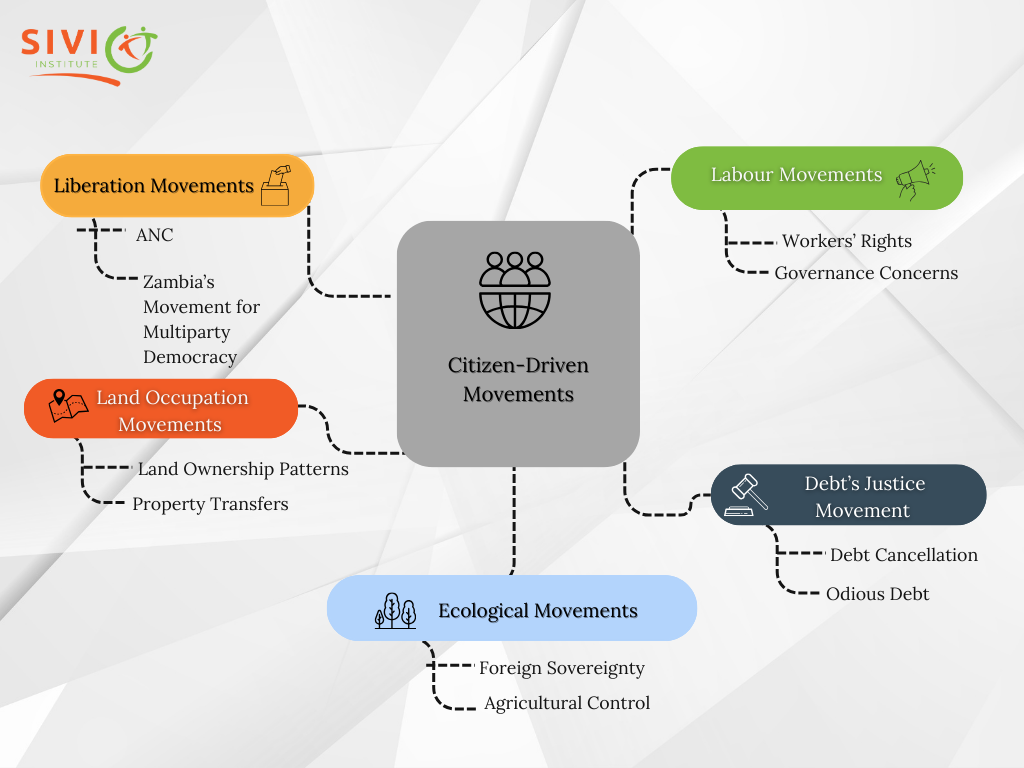As we step into 2025, there is a palpable sense of anticipation for a brighter future across various facets of our lives, including the state of our democracies. The past year has been a mixed bag for African nations, with several countries undergoing elections that yielded new political dispensations including new administrations led by former opposition parties and in some instances governments of national unity. In some cases, the incumbent parties retained power. It was a year in which electoral democracy was tested (Mail & Guardian). The consensus around electoral democracy has been somewhat restored.
What then should we look out for in 2025?
The previous rounds of elections have demonstrated that changing leaders or political parties although necessary is not enough. Elections are a crucial component of democracy; they are not sufficient on their own to ensure transformative development. The reality is that many African electoral democracies have not delivered the expected outcomes, often resembling undemocratic regimes where elites prioritise personal gain over public service. We hold on to the statement that elections are a necessary but not sufficient condition for democracy. Perhaps the biggest disappointment for the electorate is to see those in new administrations behaving the same (if not worse) as the previous regime that they would have voted out. This happens across many countries on the continent.
What then is the missing part of the puzzle?

In our earlier writings, we have made a case for citizen-centred democracies. In this big bet, we build upon an ideal of citizen-centred democracy. One of the most pressing issues highlighted in recent discussions is the need for accountability in our democratic systems. The lack of accountability on the part of public officials has led to stagnation in Africa’s development agenda, and we must do more to hold our leaders accountable
It involves holding governments to a standard of performance and ensuring that they face consequences for bad governance, abuse of public resources and ineffectiveness. However, the current political landscape often complicates this process. Legislative bodies, which are supposed to oversee government actions, frequently operate under the same political party affiliations as the executive branch, creating a conflict of interest that undermines accountability. This has resulted in widespread allegations of corruption and abuse of power, further eroding public trust in government institutions. To address these challenges, there is an urgent need for citizens to expand their repertoire of public work beyond just casting their votes.
The concept of accountability is fundamental to a functioning democracy.
In 2025 we are making a bet on citizens to build upon their collective energy to come together in various associational and institutional platforms, demanding accountability from public officials at both national and local levels. If anything, the agitations amongst Gen Zs in Kenya, Senegal, Ghana and Nigeria provide hope for a citizen-driven redefining of democracy and good governance.
The big bet is that a consensus around accountability will significantly improve the quality of our democracies across Africa. In many instances, the assumptions have always been that Africa’s leaders will be moved by a certain moral compass towards duty, integrity and effective delivery of mandate. There is reason to believe that either the moral compass has been lost or sacrificed at the altar of personal accumulation.
Figure: History of Citizen-Driven Movements of Accountability

Several civil society organisations have already begun to pave the way for accountability-focused initiatives. For instance, platforms like Corruption Watch and BudgIT Nigeria have worked tirelessly to expose corruption and track government performance. These efforts are crucial, but they must be expanded and integrated into broader social movements to create lasting change. Currently, many citizen-led initiatives emerge in response to crises, often achieving short-term gains but lacking the mechanisms for sustained impact. By collaborating with established civil society organisations, these movements can enhance their effectiveness and ensure that accountability remains a central theme in the political discourse. Moreover, tracking the conversion of electoral promises into actionable policies is essential. Political parties often present lengthy manifestos filled with promises during election campaigns, yet these commitments frequently go unfulfilled. Citizens must demand action from their leaders on promises and pledges and ensure that they translate into tangible actions that benefit the public.
As we look ahead, it is crucial to foster a culture of accountability that permeates all levels and sectors of governance, including health, education, and public finance. This requires a proactive approach, where citizens are not just passive observers but active participants in demanding transparency and good governance. The role of the media, civil society, and grassroots movements cannot be overstated in this endeavour. In conclusion, the journey towards a more accountable and effective democracy in Africa is a collective responsibility. As we enter 2025, let us commit to revitalising our democratic processes by holding our leaders accountable and ensuring that they deliver on their promises. By doing so, we can create a brighter future for all citizens, where democracy truly works as it should.
The time for action is now, and together, we can make a significant impact on the trajectory of our nations.
Share this blog:
